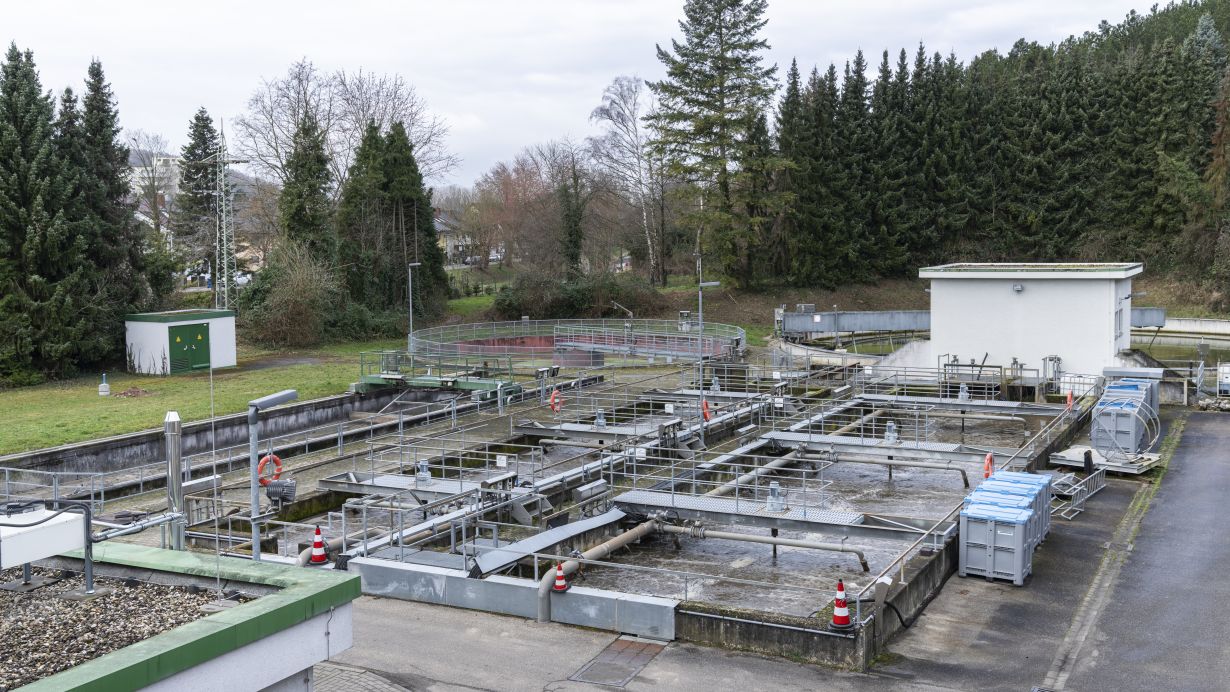Coronaviruses can be detected in wastewater some days before first disease symptoms develop. On this basis, it is possible to determine the number of infections more quickly, analyze the infection situation more precisely, and identify new Covid-19 variants and their spread at an earlier stage. The project “Systematic Monitoring of SARS-CoV-2 in Wastewater” coordinated by Karlsruhe Institute of Technology (KIT) now plans to leverage these potentials and to find out whether and how a wastewater-based Covid-19 early warning system can be implemented in Germany. The project is funded by the European Union with about EUR 3.7 million.
“This interdepartmental research project provides the opportunity to pool the scientific know-how and expertise in wastewater monitoring throughout Germany and to systematically use it to contain the Covid-19 pandemic,” says Dr. Verena Höckele, Project Coordinator of the Project Management Agency Karlsruhe (PTKA) within KIT.
Twenty locations in Germany will successively join the pilot project that started in February and is scheduled for a duration of one year. At these locations, mixed water samples will be taken from the inflow of sewage treatment plants twice a week and over a period of 24 hours. After processing, the samples are subjected to PCR testing. Then, the results will be linked to pandemic data of the local health authorities and incorporated in the assessment of the pandemic situation, if possible.
Wastewater Monitoring to Detect Virus Variants More Rapidly
“The process to determine the frequency and dynamics of SARS-CoV-2 viruses based on municipal wastewater samples has already been tested successfully in Germany within the framework of several small research projects,” says Professor Harald Horn, Head of the Water Chemistry and Water Technology Department of KIT’s Engler-Bunte Institute. Horn is convinced that it will not only help better estimate the real number of infections, but also contribute to the spread of variants and mutations more rapidly compared to detecting tests of individuals.
Within the project, researchers will analyze comparable results to find out which methods might be suited for area-wide monitoring and which data would have to be collected to detect coronaviruses in wastewater of complex composition. Problems become obvious when looking at the current detection of the Omicron variant, whose virus fragments are mainly released via the upper respiratory passages. Compared to the Delta variant, only one third of the Omicron fragments enter the wastewater. Hence, scientists will have to further improve the quality of sampling, laboratory analysis, and data evaluation.
At the end of the pilot phase, it will be decided on whether an area-wide wastewater monitoring or a representative monitoring scheme will be recommended for Germany. Such an area-wide early warning system against Covid-19, which would also be suited for other pathogens, such as polio or influenza viruses, has already been deployed in the Netherlands, Canada, and Australia.
ESI-CorA: Funding and Project Partners
The project “Systematic Monitoring of SARS-CoV-2 in Wastewater” (ESI-CorA) is funded by the European Union with about EUR 3.7 million under the ESI (Emergency Support Instrument) program. It was initiated by the Federal Ministry of Health, the Federal Ministry of the Environment, Nature Protection, Nuclear Safety, and Consumer Protection, and the Federal Ministry of Education and Research. The project is coordinated by the Project Management Agency Karlsruhe (PTKA) within KIT. The project partners are KIT, Technical University of Darmstadt, the German Environment Agency, and Robert Koch Institute. Upon completion of the pilot project in February 2023, a steering body with representatives of the federation, states, and associations will decide on permanent operation.
In close partnership with society, KIT develops solutions for urgent challenges – from climate change, energy transition and sustainable use of natural resources to artificial intelligence, sovereignty and an aging population. As The University in the Helmholtz Association, KIT unites scientific excellence from insight to application-driven research under one roof – and is thus in a unique position to drive this transformation. As a University of Excellence, KIT offers its more than 10,000 employees and 22,800 students outstanding opportunities to shape a sustainable and resilient future. KIT – Science for Impact.

